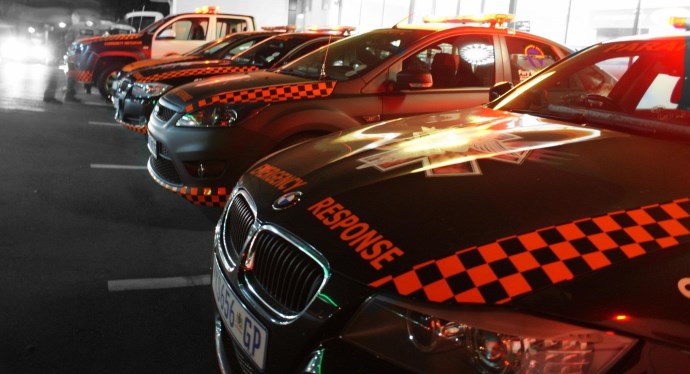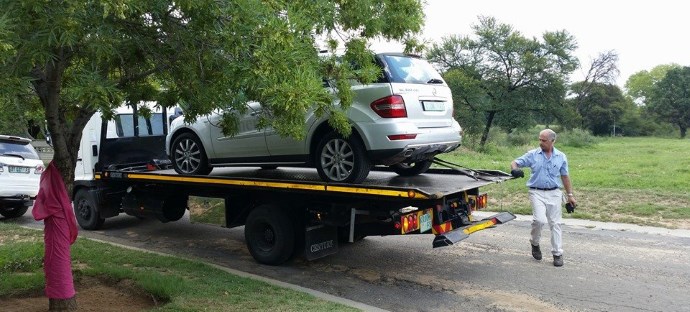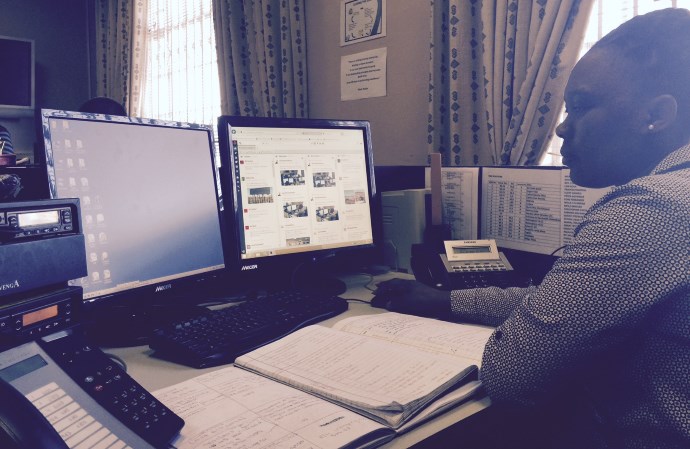 Introduction and History
Introduction and History
As long as there has been travel by road there has been a need for roadside assistance. The earliest formalized roadside assistance includes in the UK the Royal Automobile Club (RAC) (formed in 1897) and The Automobile Association (AA) (formed in 1905) offering repair services to their members.
While early motorists were quite capable of performing basic roadside repairs, increased vehicle technology has made it increasingly more difficult for the modern vehicle owner.
Getting stuck next to the road can be traumatic and frustrating, especially with the knowledge that many criminals are targeting the lone motorist in need of assistance.
South Africa has the 10th largest network of roads in the world covering a distance of 750,000 km of which about 154,000km are tarred roads.
There are many reasons why a motorist might get stranded next to these roads. It may include vehicle failure, damage caused by factors such as potholes and road works or the numerous crashes we report on daily.
In the event of operational difficulty or unexpected emergency, the motorist needs reliable service fast and efficiently. In this section, we will explore and analyse some of these options.
Please note - This section is not intended to promote a specific service but rather to guide motorists in making informed and safe decisions.
Providers of Roadside Assistance
Roadside assistance has become a rather competitive business with many different providers offering a variety of services. Many motorists may not be aware of the assistance they are able to receive or that they are in fact covered to enjoy some of the basic benefits.
Roadside assistance providers include:
- Associations that are membership-based clubs providing services to assist members through the use of fleet assistance vehicles.
- Toll route operators managing tolled roads.
- Car insurance companies offering these services as benefits through an insurance policy with premiums instead of member subscription fees.
- Private roadside assistance companies.
- Vehicle manufacturers offering roadside assistance for their customers.
- Vehicle tracking companies.
- Financial institutions and retail companies offering credit cards to clients with roadside assistance as a benefit.
- Developers of smartphone apps contracting with emergency service providers to offer these services to those who download their apps.

What are the Types of Roadside Assistance Services we can expect?
The services offered by providers may vary - but these are some of the most prominent services:
- Investigating and repairing the problem causing the breakdown.
- Battery failure: Checking why the battery does not start the vehicle and assisting to jump-start the vehicle.
- Tyre issues: Helping to change a flat tyre or damaged tyre with a spare tyre. If there is no spare tyre the vehicle may be towed.
- Towing a vehicle after electrical or mechanical breakdown to the nearest approved dealer or competent repairer
- Towing a vehicle involved in a crash away from the scene of the crash.
- Providing a small amount of fuel when a vehicle runs out of fuel.
- Lockout Service - Obtaining the service of a locksmith to open the vehicle and retrieve the keys when keys are locked inside a vehicle or getting replacement keys. The vehicle may be locked- out not only through negligence such as losing keys but also by damage caused through attempts at vehicle theft.
- Pulling out a vehicle that is stuck in the snow.
- Safe storage of the vehicle.
- Vehicle repatriation.
- Extrication and winching the vehicle.
- Guarding the vehicle - an armed security guard may be provided to stay with the motorists or vehicle until it can be safely towed away for storage and repair.

Additional Benefits
With emergency roadside and medical assistance becoming a rather competitive industry, we can expect to find many “add-on” benefits offered by the different providers. For some providers, roadside assistance is their main focus of business whereas for others it may merely be an added benefit to other services they provide.
Emergency services providers differentiate themselves through the nature of services provided and the cost of such benefits. Different levels of membership are provided as well as cover ranging from the most affordable to executive and more comprehensive packages.
Added and enhanced benefits include:
- Emergency Overnight / Hotel accommodation for driver and passengers.
- Offering car hire and taxis to ensure the client can safely continue the journey.
- Providing emergency medical response and rescue in the event of injury.
- Medical evacuation/repatriation, admission to a medical facility, relocation after treatment, trauma counselling, repatriation of mortal remains, free medical advice and assistance, dispatch of emergency medication or blood, travelling companions for stranded minors, and drug and generic medicine information.
- Long-distance towing.
- Motor-related legal advice and technical advice lines.
- Discounts on services and special offers on parts.
- Technical investigations of vehicles.
- Assistance with claims against the Road Accident Fund.
- Assistance with claims from pothole damage against a road management authority.
- Designated driver service to combat and prevent drinking and driving.
- Medical repatriation when you are hospitalised outside of your hometown.

Cellular and Smartphone Technology and Roadside Assistance
In the earlier years of roadside assistance, motorists found a network of emergency phone boxes, placed at intervals by the roadside. In recent times mobile technology and smartphones have made it a lot easier to find emergency roadside assistance!
Apart from the ability to make a call and browse the internet for emergency numbers, we now find a variety of smartphone apps offering consumers emergency services. These services are either available at a nominal monthly subscription or free - depending on the business model chosen by the application developer.
Some important info to remember:
- The Emergency Assistance or Roadside App can put the motorists in touch with National Call Centres that operate 24 hours a day, 7 days a week.
- The trained operators are able to assess the situation and send the necessary assistance using GPS positioning technology/ accurate geolocation features.
- The call centre operators work closely with recovery and repair specialists to make sure that the right service provider is dispatched as quickly as possible.

What do you need to ensure fast and efficient roadside assistance?
 This will depend on the technology used, the location of the emergency and the nature of the emergency.
This will depend on the technology used, the location of the emergency and the nature of the emergency.
- When the person in distress is a member of an emergency services provider they might have all the personal details and that of the vehicle on record and immediately available.
- These providers may know what kind of battery you need if yours runs flat, how to assist you with on-the-spot repairs or key lock-outs and even know what kind of vehicle to send if you need a tow.
- A vehicle manufacturer offering the service might request that you provide your vehicle model and Vehicle Identification Number (VIN)/Chassis number. This can be found on the passenger side of your vehicle’s dashboard and can be seen from outside the vehicle through the window.
- If the service is required through an emergency assistance/roadside App your location details will be available immediately to the provider through the tracking/ location functionality on the application.
- If you are travelling on any of the national roads you can ensure fast response by using the route marker boards next to the roads.
- The emergency response vehicles of those managing the tolled roads usually have vehicle tracking installed and are well monitored while patrolling the freeway.
- The call centre operators are then able to dispatch the emergency vehicles closest to your location.
- When talking to a call centre operator the call taker will request the following information:
- Your telephone number (to remain in contact with you should you be cut off)
- Your location from the route marker board or other info (street name and nearest crossroad)
- The details of what has happened, how many people are injured, whether there is a fire, etc.
Terms and Conditions / Exclusions
It is the duty of the consumer to ensure that he is aware of the content of any policy or agreement to offer roadside emergency assistance. It is important to be aware of the T’s and C’s [Terms and Conditions] as there may exclusions as to the services rendered. These exclusions will generally differ based on the nature of the service, the frequency, time and costs thereof etc.
Nature of the Services
- Roadside assistance may exclude parts, components, keys or key cutting costs, lubricants or similar charges.
- The agreement may stipulate that additional material, parts and labour will be at your own cost.
- Very often the cost of repair of parts such as new batteries, tyres, locks, keys is excluded.
- The costs of wheel balancing after a tyre change and similar charges are likely to be excluded.
- It may exclude vehicles not registered under the Road Traffic Act or similar legislation applicable in South Africa.
- Vehicles that are not roadworthy or clearly in a state of neglect are also usually excluded.
Frequency and Quantity of Roadside Assistance
- The roadside assistance provider will most likely put a limit to the number of times services will be provided free of charge.
- When providing fuel a policy usually stipulates the quantity - such as 10 litres of fuel.
- It may also protect itself against the serial negligent vehicle owner by limiting the assistance in a contract to e.g. 2 incidents per year.
- Accommodation benefits are often limited to one night or a 24hour time limit on the stay.
- When a rental vehicle is provided it may define the class of the vehicle offered such as a class B vehicle.
Location / Distance / Time
- The terms and conditions may stipulate that it covers a service such as a Call-out detailing a specific time such as 1 hour of labour.
- Very often the terms may stipulate a radius of i.e. 100km for which courtesy transport may be provided.
Costs
- A limit may be stipulated by some providers to the costs of towing i.e. R500 whereas some providers may offer long-distance towing.
- A price limit is often placed on the value of hotel accommodation or car and taxi rental.
- Cost of safe storage of the vehicle is also very often set at a maximum amount.
- Cost of repatriation of the vehicle following the repair - i.e. up to a maximum of R500.
It is important for motorists to ensure that they make informed decisions and to acquaint themselves with the contractual stipulations, terms and conditions and both the benefits and exclusions.
Vehicle Recovery and Towing of Vehicles
Safety at the Scene when Calling for Roadside Assistance
Always consider your own safety, that of your passenger s, other road users and that of your vehicle in the event of a breakdown.
A few important safety tips to remember:
- Awareness is the key to safety at road crash scenes or where vehicles have broken down.
- Knowing the hazards and how to work around them will ensure the safety of everyone.
- Put out your warning triangle at least 45m behind the vehicle.
- Turn on your hazard lights and headlights. (Any and all lighting that may help other road users see that there has been an accident or vehicle breakdown and that slowing down is necessary.
- Whether it is safe to move away from the vehicle will depend on the scene, the time and the safety near the location.

Conclusions:
Emergency responders always refer to the “Golden hour” after a road crash in emphasizing the need for fast and effective medical response. With so much crime having an impact of the safety of road users there is a similar need for fast and efficient response to protect motorists who have survived a crash or who are stuck next to the road from a vehicle breakdown!
There are many professionals able to offer roadside assistance swiftly and affordably. We will encourage road users to do their homework before travel and to plan ahead for possible worst-case scenarios to ensure that they find the assistance needed!
Also view:
Project Help and Road Safety
FirstGroup and Road Safety
Vehicle Recovery and Road Safety
Accident Scene Safety
What to do in case of an Accident / Road Crash / How to handle an Emergency
Emergency Response Time to Road Crashes
The Emergency Call Centre Operator: How do they do it?
Smartphone Apps and Road Safety / Roadside Emergencies